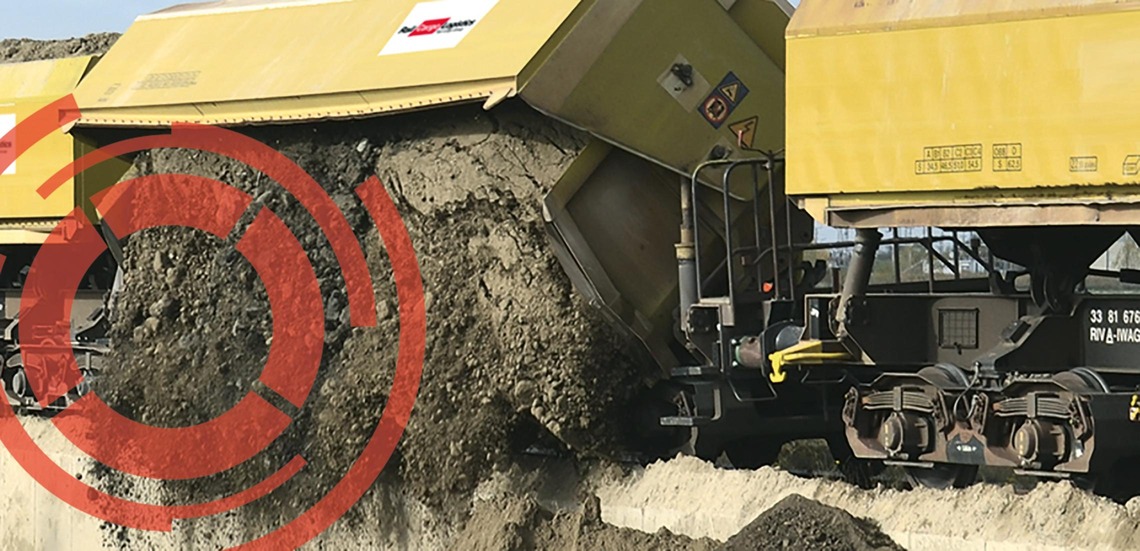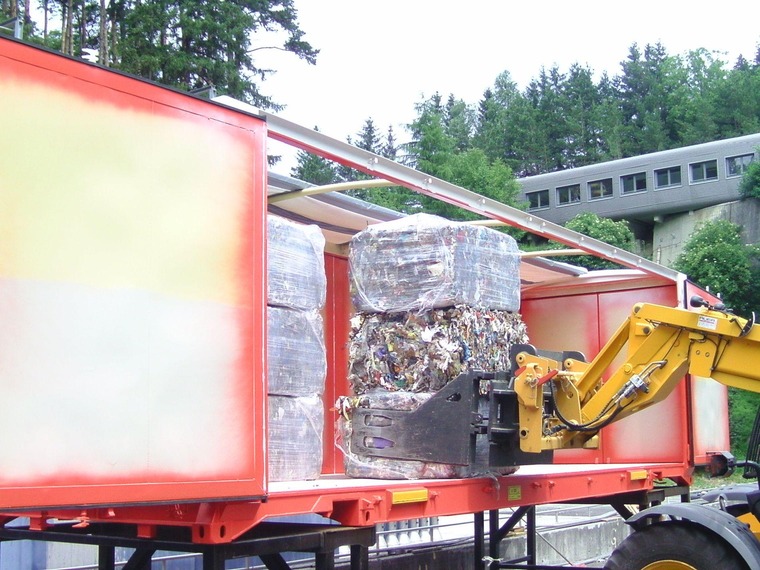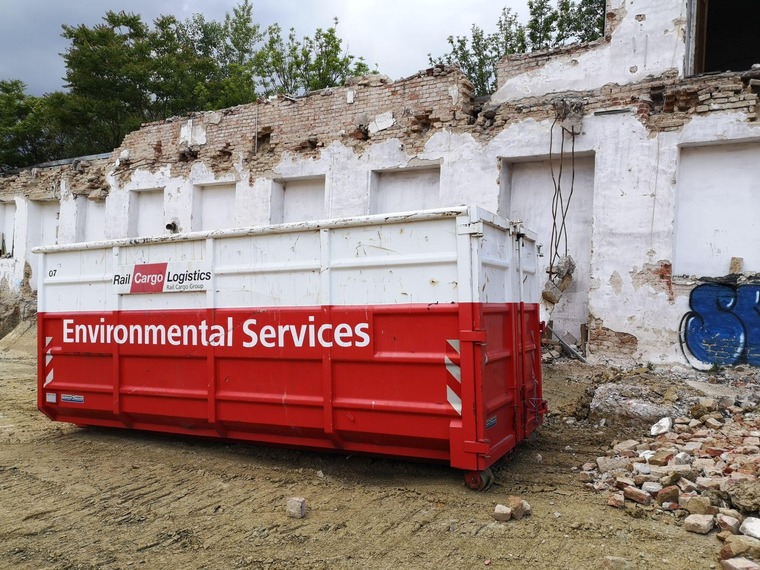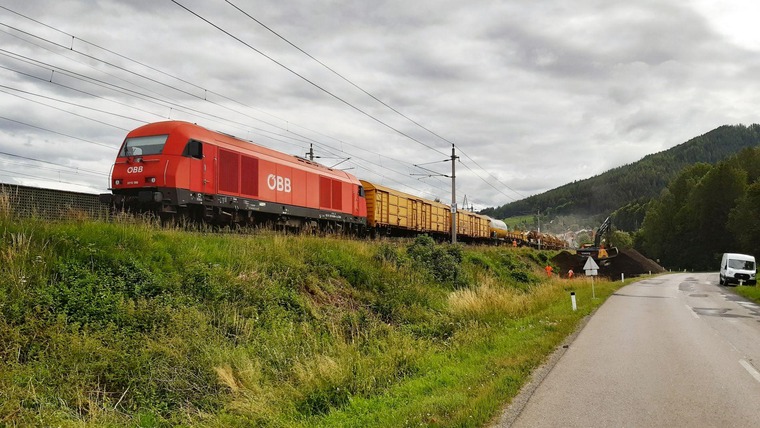With 8.8 million tons of CO2 emissions in 2019, truck traffic in Austria is currently one of the biggest barriers to a net-zero transport system. This is not just an issue with freight traffic, but also with waste transport. The fact that 72 million tons of waste were transported in Austria in 2019* alone highlights the importance of shifting even more waste management from road to rail in the future in order to meet all our climate goals.
The conditions for this are already in place: Many different kinds of waste are particularly well suited to rail transport because of their mass, weight, properties or the way they are transported. For example, excavated material, construction and demolition waste, household waste, as well as ash and slag.
Years of experience at the ÖBB Rail Cargo Group
The employees of Environmental Services at ÖBB Rail Cargo Group make up the waste management centre within the ÖBB Group. They are responsible for disposing of a wide range of ÖBB waste products, recycling secondary raw materials (e.g. scrap metal, non-ferrous metals, paper, etc.) and disposing of old train carriages. Other services include freight wagon cleaning and oil separation.
Several customers jump on board
Numerous customer examples show that waste management by rail has worked successfully for a long time. At EVN thermal power plants, for example, 2.82 million tonnes of residual and bulky waste have been transported in an environmentally friendly way by rail to the incineration plant and thermally treated since 2004. Another example is the company Hackl Container, an ÖBB Rail Cargo Group customer since 2005. 10,000 tonnes of municipal waste are transported in bales from Burgenland to Upper Austria for thermal recycling in a CO2-friendly way. This has already saved more than 2,400 tonnes of CO2. Innovative modes of transport and an extensive infrastructure are used for this: More than 400 handling points across the Austrian rail network and 530 loading points are available for the efficient transport of waste.
The future is rail
A lot has already been achieved, but this is just the beginning. By 2040, current rail capacity is set to be doubled. This will be made possible by a targeted, rapid expansion, as well as innovation, digitalization and new technologies. Railways are essential in order to counteract climate change. If our climate targets are missed by 2030, then we will face devastating environmental and financial consequences. Austria could face compensation payments amounting to 9.2 billion euros as a result.
* Source: Status Report 2021 “Review of Waste Management in Austria”, Austrian Federal Ministry for Climate Action, Environment, Energy, Mobility, Innovation and Technology





